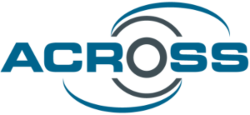Closed design processes and proprietary technology position the public as consumers or subjects. The alternative is to build public technology with an open design process, based on public values, in order to position people as citizens with democratic agency. This is was the topic of the workshop that Max Kortlander and Marit Hoefsloot (Waag Futurelab) gave at the iBestuur congress ‘European digital identity’ in The Hague on the 9th of November.
Max and Marit started the workshop by briefly presenting the Public Stack, a model developed by Waag to unpack the different layers and phases of technology development. The model can be used to inspire designers and developers to base their design processes and technology on public values such as openness and transparency. This is different from the government stack and business stack, both of which are closed off from public participation. Open that up, is the message of Waag, and subsequently, the Public Stack. Max and Marit then presented ACROSS and how the different lessons of the Public Stack can be recognized in the project.
The Public Stack argues that in each phase and layer of the development of technologies, the foundational, design, and technological choices must be made transparently and with the best interest of the public in mind. The foundation describes how the technology must be based on fundamental civil rights and values. In ACROSS, the foundational values include data sovereignty, privacy, citizen control, and user friendliness. In more recent work (D2.4 Report for cross-border service gap analysis – Final), the values inclusion and socio-economic justice in the ACROSS platform design have also been investigated.
Central to the Public Stack is the design process; this should follow a democratic, transparent, interdisciplinary, and co-creative approach to foster public participation. The ACROSS consortium consists of partners form different disciplines, some with expertise in the technical development of platforms and data governance, and some representing the different pilot countries. Moreover, there are two partners who specialize in co-creation methods and can cultivate constructive conversations between the technical and social partners.

The technical layer argues for openness and transparency of hardware and software, including algorithms, data and protocols. ACROSS does not develop hardware but does use and develop open-source code and API’s. Moreover, ACROSS is an experiment in decentralisation, meaning that the platform will not handle nor save any personal information of the users (see figure 2). Rather, the user saves their personal data in their own encrypted wallet and can share their data directly with the service provider as they see fit. This also includes the possibility of revoking your consent of sharing your personal data.
Finally, at the top of these three layers is the citizen who is ‘in charge’ of the application. The citizens are not passive consumers as with current systems, but individuals with rights and insight into the system’s operation and goals. In the ACROSS project, there are three pilot countries: Germany, Greece, and Latvia. In each of the countries, citizens have been interviewed about their cross-border experiences, have participated in co-creation sessions and have given feedback on the platform. The journeys, desires and requirements of these individuals have played a central role in the design of the platform.
At the end of the presentation about the Public Stack and ACROSS, the 30 or so participants were invited to use their newly acquired knowledge of public values-based technology and analyse their own projects. This triggered a process of reflection: How can we design our own tech projects to be in line with the public interest at each stack layer?

